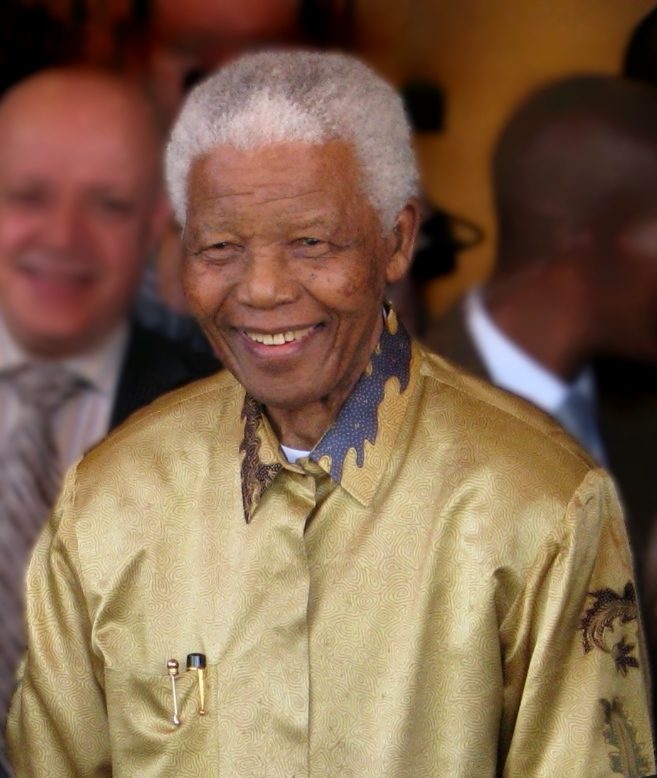South Africa and the World Mark Mandela Centenary
By • July 16, 2018 0 758

“As I walked out the door toward the gate that would lead to my freedom, I knew if I didn’t leave my bitterness and hatred behind, I’d still be in prison.”
Rolihlahla — Nelson — Mandela walked out of the gates of the last prison which held him with little public show of bitterness or hatred, qualities which might have been easily forgiven. After all, he had spent 27 years of his life in various prisons for defending his political principles, for his searing and relentless and sometimes violent fight against apartheid, the race-based, decades-long South African policy that had all but enslaved the black population of his country.
Even now — even with the history of African National Congress party leadership, his anti-apartheid fights, his charismatic speeches and writing, his virulent battles — it is the years he spent alone, often in silence, in various prisons that still mark the Nelson Mandela image in history. It is an example of a human being imprisoned in darkness bringing his beliefs into light, into clamor and triumphant, stirring action.
After he walked, probably blinking, into the sunlight outside Victor Verster Prison, there was no more quiet suffering: it was the beginning of the end of apartheid, which did not come easily. It was a swing of political power of massive proportions, a reversal of historical importance achieved by the moral power which he attained during the 27 years of his solitary life.
July 18 is the centenary of Nelson Mandela, who came out of the Madiba clan in the village of Mvezo in the Eastern Cape of South Africa. The celebration will be widespread — and far from quiet.
Former U.S. president Barack Obama will give a flagship speech in Johannesburg on July 17, a speech called the Nelson Mandela Annual Lecture: “Renewing the Mandela Legacy and Promoting Active Citizenship in a Changing World.”
The following day, Mandela’s birthday, Obama will host a town hall event with some 200 young African leaders, who are attending a five-day training program.
Current South African president Cyril Ramaphosa said he would mark “Mandela 100” by donating half his salary to honor “the great sacrifice he made and his tireless commitment to improving the lives of the most vulnerable.”
After his release from prison in 1990, Mandela led his African National Congress to a world-changing victory in 1994, in South Africa’s first multi-race elections. With the change in the access to voting rights and power-wielding tools, the ruling structure had crumbled. Mandela served one term as president until 1999 before stepping down to a sage-like retirement.
The youthful Mandela, once he began to actively engage with the ANC, entered the firebrand leadership passage of his life. His youthful pictures brim with visionary anger.
Mandela’s vehement and vocal opposition to the injustices of apartheid — portrayed with stinging eloquence in the plays of Athol Fugard (“The Blood Knot,” “‘Master Harold’ … and the Boys” and “The Road to Mecca”) — eventually led to his imprisonment and that of others.
What followed was not silence, but rather a rising sentiment of support from the rest of the world. In small, obscure prisons, the injustice of his status became, for the ruling class, untenable in the eyes of the world.
As early as 1963, when he was convicted of sabotage, Mandela eloquently stated his principles from the dock: “I have fought against white domination, and I have fought against black domination. I have cherished the idea of a democratic and free society in which all persons live together in harmony with equal opportunities. It is an idea which I hope to live and to achieve. But if needs be, it is an idea for which I am prepared to die.”
When Mandela was finally freed — by South African leader F. W. de Klerk, with whom he shared a Nobel Peace Prize — Fugard said it was “a period of euphoria that was the most extraordinary experience of my life.”
After his retirement, Mandela became a beloved and admired figure, a kind of loveable sage. That respect for a certain indomitable, rock-like figure remained — as attested by the sculpture outside the South African embassy on Massachusetts Avenue.
But in turbulent times, it is the cloak of stolid, strong solitude which gave him the permanent moral authority that overcame everything else. He embodies to this day the spirit, not just of country, but of every man and woman struggling to achieve parity and freedom.

